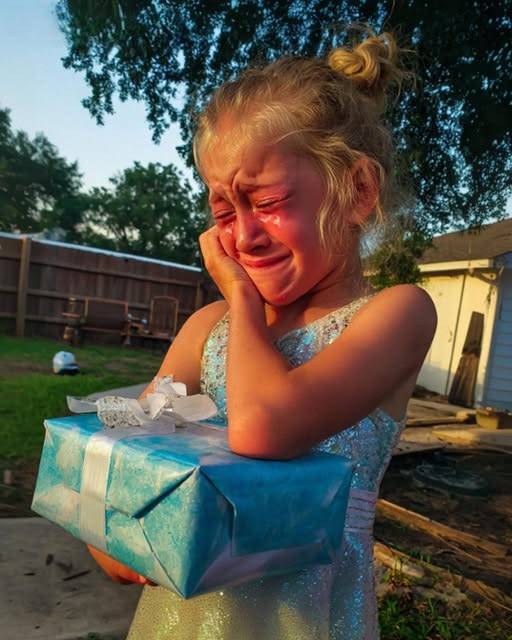When I met Daniel, I was 28, newly divorced, and already someone’s mother. My daughter, Ellie, was two then
—sweet, curious, and the center of my world. I brought her along on a second date with Daniel, partly because I couldn’t afford a babysitter, but mostly because I needed to know: would this man love both of us?
Most men flinched when faced with that reality. They offered awkward smiles, forced interest, and treated her like a test to pass. But Daniel? He knelt down, admired her bunny socks, and spent twenty uninterrupted minutes helping her glue sequins to a wrinkled piece of construction paper. I watched from across the table, heart thudding, cold fries forgotten. It was the first time I saw a future that didn’t feel like compromise.
Two years later, we married. Ellie wore a flower crown and asked to walk down the aisle holding both our hands. At the reception, she stood on a chair, mouth full of cupcake, and called him her “almost-daddy.” The whole room laughed. Daniel cried.
He adopted her on her fifth birthday. We threw a backyard party—string lights, cake, lanterns swaying in the breeze. When she opened her gifts, she climbed onto Daniel’s lap and whispered, “Can I call you Daddy now? For real?”
He kissed her forehead. “Only if I can call you my daughter forever.”
I believed love would be enough. I thought, if we just held on tight to each other, the rest would fall into place. But sometimes, love doesn’t reach every corner—especially the ones where polite silence and generational bias fester beneath a smile.
Daniel’s mother, Carol, never said anything outright cruel. But she never included Ellie either. Cards were always addressed to “Daniel and Tina.” She never asked Ellie about school or commented on the holiday crafts she proudly mailed. And after one dinner, she eyed my lasagna and murmured, “You must’ve learned fast, raising a child on your own.”
Daniel would squeeze my hand and say, “Give it time.”
